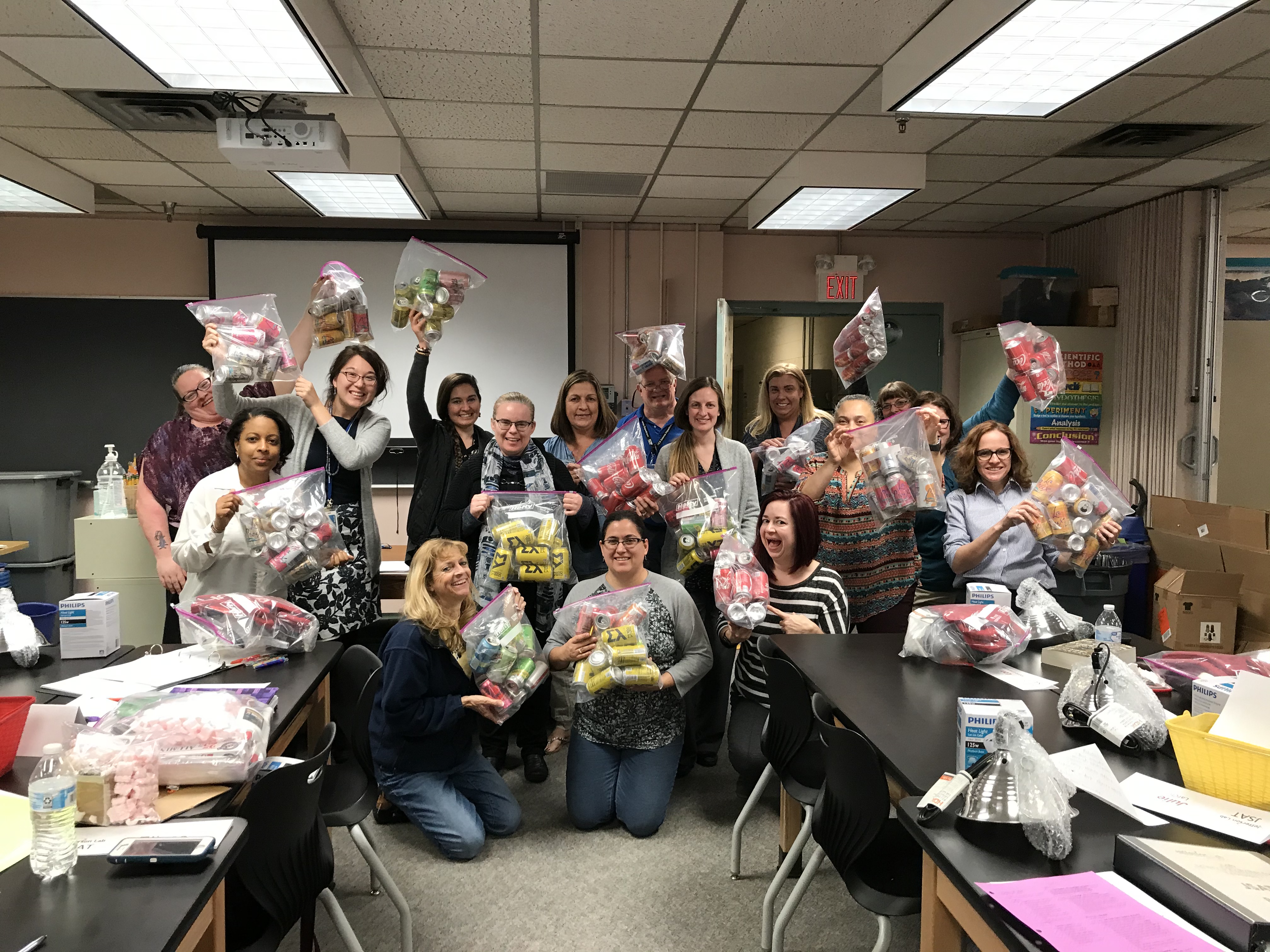A group of JSAT teachers participate in a group activity in Feb. 2020
The halt of all on-site educational activities at the lab has moved the Jefferson Lab Science Activities for Teachers program online
The Science Education Team at Jefferson Lab is known not only for inspiring teachers, but providing them with the tools and resources they need to conduct science experiments in their classrooms through the Jefferson Lab (JLab) Science Activities for Teachers (JSAT) program. The quarantine advisory status due to COVID-19 has not stopped them. Just as instructors across the world have had to adjust their lesson plans overnight for students, the Science Education Team at the lab has had to adjust their teaching strategy for teachers. And they found a way to do it.
After it became apparent the lab would be moving to a minimal on-site operations status with the majority of the workforce working from home remotely, the Science Education Team adapted by moving elements of the program online.
For more than 17 sessions during the school year, JSAT teachers are given over 100 STEM (science, technology, engineering and mathematics) -focused ideas, activities and projects to take back to their respective classrooms. The JSAT program culminates in the annual JSAT Teacher Night. During a typical year, JSAT Teacher Night is where teachers can share what they’ve learned during the course with other local teachers. JLab Science Education Team Lead, Lisa Surles-Law, describes JSAT’s Teacher Night as “a science fair for teachers.”
“Roughly 40% of the current JSAT activities can be presented remotely by classroom teachers to students,” JSAT organizer and Science Education administrator, Carol McKisson says. “We are helping teachers with this adjustment as much as possible as the school year comes to a close.”
During a time when teachers were guiding their classes remotely, the Science Education Team were on standby for any questions the teachers had about projects within the program. Additionally, they assisted with remote career fairs and providing teachers with resources as they became available. The remaining JSAT materials were distributed at the end of May.
“As everyone adjusts to possible challenges presented by COVID-19, the Science Education Team is committed to seeing a 14th annual JSAT Teacher Night next year, even if that means it will take place remotely. For now, the 13th Annual Teacher Night lessons and activities are now available to download from our website for free,” McKisson shared.
Although many of the JSAT teachers expressed their disappoint about the cancellation of JSAT Teacher Night, McKisson offered up words of encouragement: “Be creative in doing remote science experiments and demonstrations in front of your students. Don’t be afraid of making mistakes. Have fun and laugh often with your students. They love seeing and hearing from their teachers!”
Teachers interested in viewing the science education activities may see them here: https://education.jlab.org/indexpages/teachers.html
Teachers interested in signing up for the 2020-2021 year are encouraged to learn more and sign up here: https://education.jlab.org/jsat/jsat_application.pdf.
To learn more about the JSAT program, visit education.jlab.org/jsat.
The program is open to Virginia teachers and sponsored by the JSA Initiatives Fund Program, to support projects, initiatives, and activities that further the scientific outreach, and promote the science, education and technology missions of Jefferson Lab.


